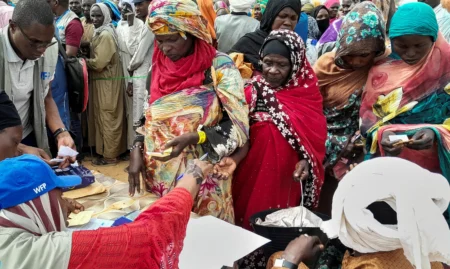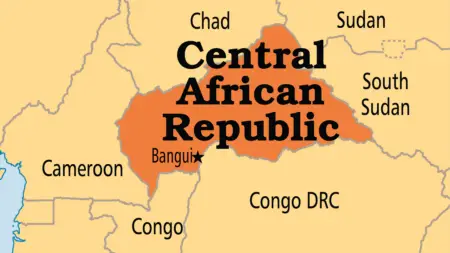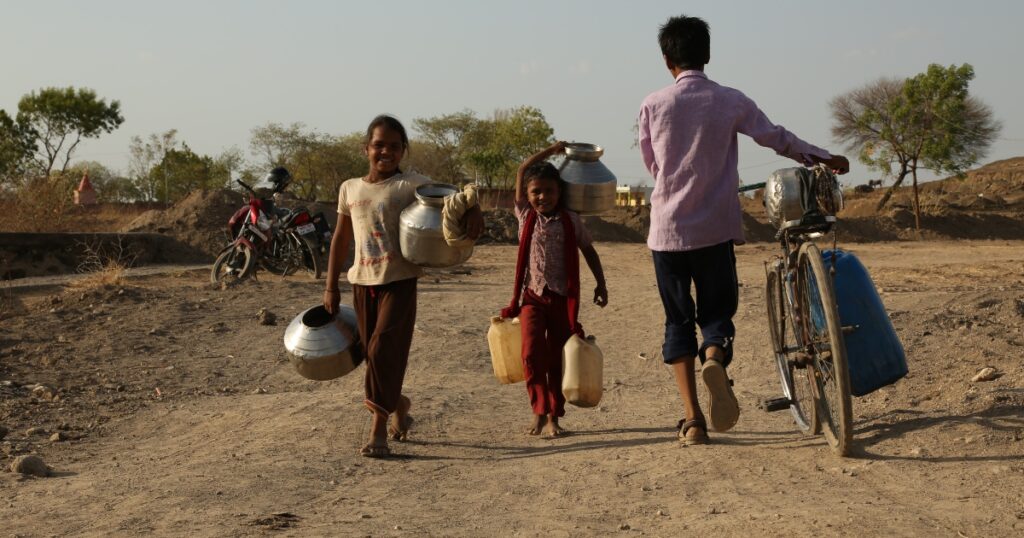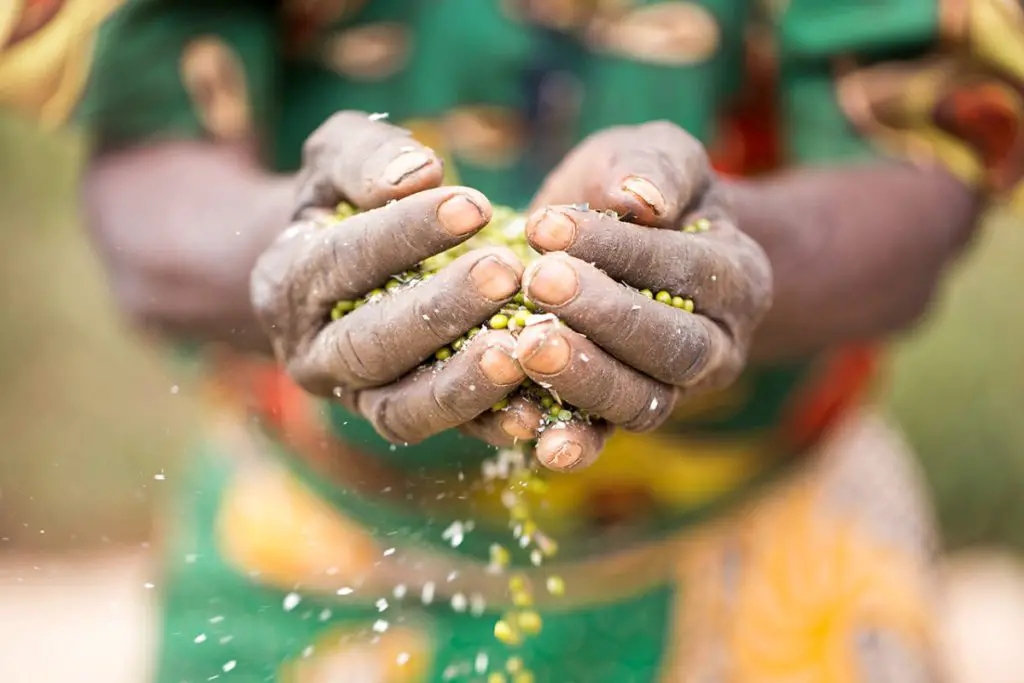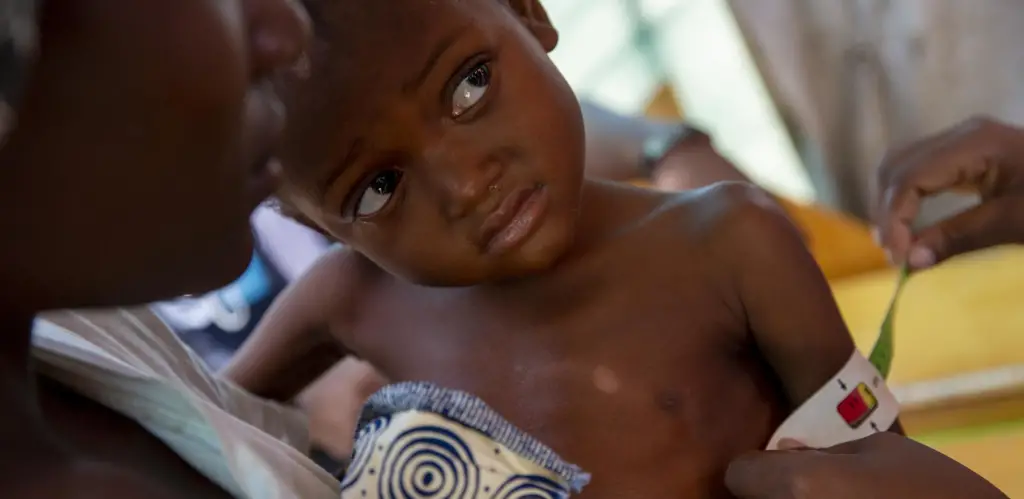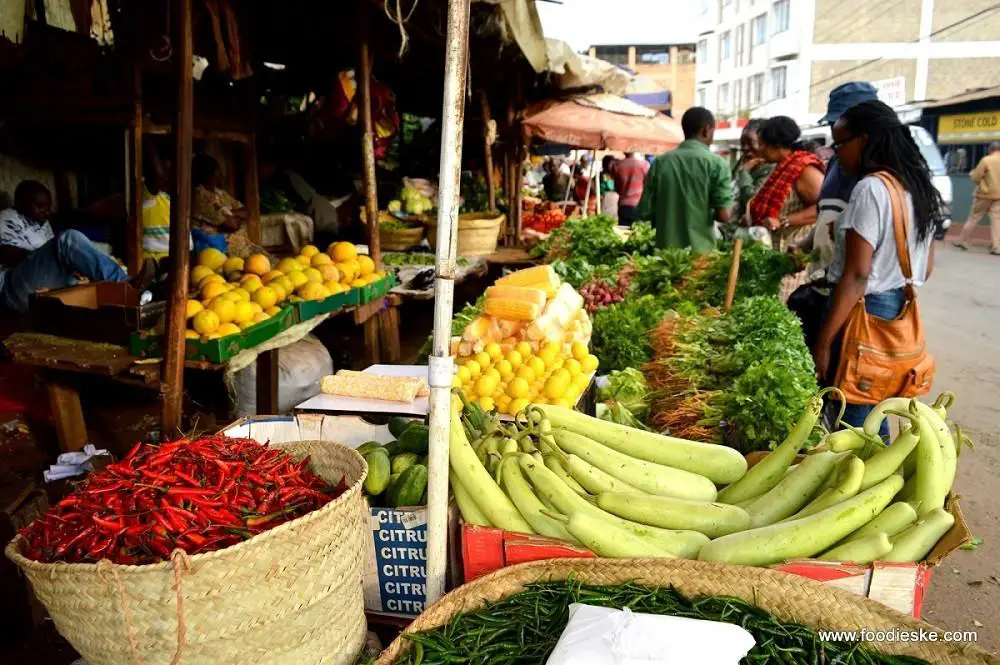- Africa’s new dawn: the rising role of digital and AI in agriculture
- Can Dangote Refinery Transform Africa Energy Ambition
- Gallup Survey: 80 per cent of Kenyan Workers Are Disengaged and Seek New Opportunities
- Madagascar Man Freed from 5KG Tumor After 15-Year Struggle
- How women in Africa are perceived and treated
- Sugar consumption in Kenya to Increase to 1.23 Million Tonnes
- Can Somalia and Turkey Oil deal Bring Change in Somaliland
- Remittances to Kenya dropped to $371.6 million in June, marking a six month low
Browsing: Food insecurity
- Sudan’s humanitarian crisis is the worst in recent history, according to the United Nations.
- One-third of Sudan’s population, that is, 18 million people, are facing acute food insecurity, while 730,000 Sudanese children are believed to be suffering from severe malnutrition.
- World Food Programme(WFP) has delivered food to over 5.2 million people within Sudan since conflicts started in April.
Sudan’s humanitarian crisis
The United Nations Humanitarian Office has warned that Sudan is on the verge of facing the worst humanitarian crisis in recent history. Key drivers of this situation include intensified conflict and growing inter-communal violence, an economic crisis, soaring prices of food, fuel and essential goods, and below-average agricultural production.
“By all measures – the sheer scale of humanitarian needs, the numbers of people displaced and facing hunger – Sudan is one of the worst humanitarian disasters in recent memory,” Edem Wosornu, director of operations at the UN Office for …
- Nigeria’s cost of living crisis has been the worst in decades, exacerbated by worsening food insecurity and record inflation.
- The lack of enough resources has led to insecurity in Nigeria as people fight for scarce resources and food.
- In response to Nigeria’s cost of living crisis, Tinubu announced a state of emergency in July and intends to begin grain distribution in the coming weeks.
Tinubu’s Reforms worsen Nigeria’s cost of living crisis
Nigeria, Africa’s largest economy, is grappling with the worst cost of living crisis in decades and a worsening food security situation. A significant portion of the population is experiencing extreme food insecurity. After assuming power in May 2023, Bola Tinubu’s administration adopted bold but unpopular reforms that further strained the already-battered economy.
Nigeria imports food and fuel and was buffeted by rising commodity prices due to a glim global economic situation in the last two years. President Tinubu …
- Central African Republic (CAR) may see growth projected at 3.6 percent in 2024 and 2025.
- The positive outlook is driven by anticipated higher international prices of timber, CAR’s main export.
- The World Bank says fuel shortages took a heavy toll on CAR leading to high levels of acute food insecurity.
The Central African Republic (CAR) is set to witness a return to economic growth this year after stalling in 2022, with the World Bank projecting 3.6 percent in 2024 and 2025. The latest edition of the World Bank’s CAR Economic Update indicates that heavy flooding and severe fuel shortages took a heavy toll on the country’s economy leading to high levels of acute food insecurity.
Economic activity in CAR may see a modest rebound over the medium term, with growth projected at 3.6 percent in 2024 and 2025. This is, however, provided that fuel supply in the domestic market improves …
- About 23 million people in Ethiopia, Kenya and Somalia are facing acute food insecurity.
- The worst drought in 40 years in the region has seen people lose cattle, crops, and entire livelihoods in the past three years.
- While current rains have brought some reprieve, it has also led to floods, leading to displacement, increased risk of disease, livestock loss and crop damage.
About 23 million people from Ethiopia, Kenya and Somalia are facing acute food insecurity attributable to the worst drought in 40 years and raging floods.
According to the United Nations Children’s Fund (UNICEF), the double whammy of disaster has left communities vulnerable having lost cattle, crops, and entire livelihoods.
“Over the past three years, communities have been forced to take extreme measures to survive, with millions of children and families leaving their homes out of pure desperation in search of food and water,” said Mohamed Fall, UNICEF Regional …
Worse still, the institute points to a much deeper conspiracy to force African farmers to buy agro-inputs from large corporations. In its report, the Oakland Institute says AGRA ‘imposes a regime in which farmers lose power over their own seeds and are forced to buy them back from large corporations year after year.’
“This system may also contribute to the marginalization of women.9 million smallholder farmer households, who are witnessing increased food security through AGRA’s direct interventions,” reads the report in part.
Then there is the matter overarching matter of climate change. The Food and Agriculture Organization (FAO) warns that the use of synthetic nitrogen fertiliser will increase nitrous oxide emissions, which increase the atmospheric temperature significantly.…
- The UN World Food Programme (WFP) in Sudan has received a $100 million contribution from the World Bank to assist with critical emergency cash and food sustenance in Sudan
- The Sudan Emergency Safety Nets Project aims to provide cash transfers and food for over two million people across the impoverished and crisis-wracked nation
- The country’s economic and political crisis has grown more intense due to rising inflation, conflict and displacement
The UN World Food Programme (WFP) in Sudan has received a $100 million contribution from the World Bank to assist with critical emergency cash and food sustenance in Sudan.
In the first-ever direct contribution between the two UN agencies in the country, the Sudan Emergency Safety Nets Project aims to provide cash transfers and food for more than two million people across the impoverished and crisis-wracked nation, including those internally displaced.
“WFP is extremely grateful to the World Bank for …
The governor of Lagos State, Babajide Sanwo-Olu, was the special guest of honour at the digital launch and reception to mark the landing of Equiano sea cable systems in Nigeria.
Nigeria marks Equiano’s second stop in Africa after Togo, with future landings expected in Swakopmund, Namibia, and Melkbosstrand, South Africa.
While speaking at the digital launch, Juliet Ehimuan, Google’s business strategy director in West Africa, said that the cable leverage state of the art technology to provide approximately twenty times more network capacity than the last cable built to serve the region.…
According to SOS Children’s Villages, 3.2 million children under the age of five die every year because of hunger and drought in Africa. In other words, more than half the children who die of hunger-related causes come from the continent.
In the same breath, he said that there has also been inconsistency in the flow of funds to UNICEF to support humanitarian response.
UNICEF said more than 255,000 children received treatment for severe wasting in Somalia last year. On Tuesday, January 2022, the International Organization for Migration (IOM) said the widespread drought in the Horn of Africa has severely affected the country the most, forcing the government to declare a state of emergency in November.…
In Africa, the idea of having a seed bank on the scale of the Global Seed Vault is unknown since farmers have for decades been using seed banks for their consecutive crop production activities. The sad reality is that this practice may be infeasible in the coming years since the changing climatic conditions are pushing the continent over the ledge with ever-decreasing farm productivity.
A report released by the UN’s International Fund for Agricultural Development (IFAD) in October 2021 shows that the biodiversity doomsday is nigh for Africa.
According to a report, staple crops in eight African countries might decline by as much as 80 per cent by 2050 if temperatures continue to rise driven by climate change. The result of this might be a devastating effect increasing poverty and reducing food supply.…
African agriculture has remained resilient despite the recent health crisis occasioned by the Covid-19 pandemic.
Unlike food insecurity which has persisted on the continent for decades, the continent has been relatively successful at stemming the virus which has claimed millions worldwide. Unlike in other cases, the continent has- especially in West Africa- had particular success at stemming the rate of infection. There is no conclusive reason as to why this has been the case.
However, continent-wide, the virus that remains elusive at getting a cure is hunger.
Read: Ecosystem degradation costs Africa USD 68 billion yearly
Africa has the potential to become the breadbasket of the world yet it is spending an estimated US$ 35 billion a year importing food. With this reality, stakeholders are getting together to pull Africa out of this perennial inadequacy.
In January, more than 100 European and African actors signed a charter of commitment to …





